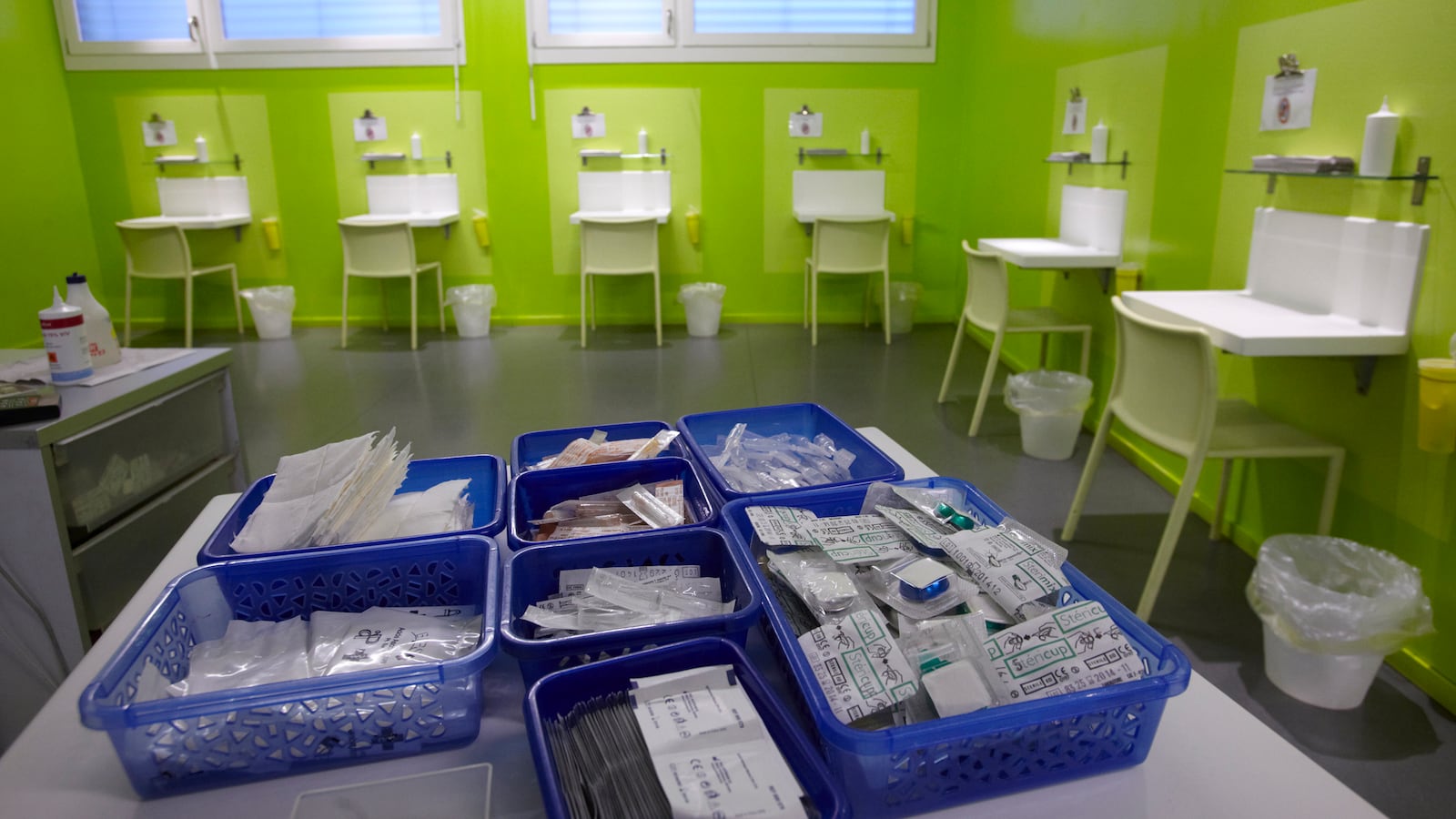Less than 24 hours after President Donald Trump vowed to end HIV transmission in the United States within a decade, the Department of Justice announced that a U.S. attorney has filed a civil lawsuit to halt the creation of supervised injection sites, which exist to prevent opioid overdoses and the sharing of contaminated needles by intravenous drug users.
The lawsuit, filed against the nonprofit Safehouse and its executive director on Wednesday morning by U.S. Attorney for the Eastern District of Pennsylvania William M. McSwain, is the first of its kind. McSwain’s suit seeks a judicial decree preventing the opening of “consumption rooms,” given the green light by Philadelphia city officials last summer, which provide safe places for drug users to inject using sterile equipment under the supervision of medically trained staff.
With the backing of Philadelphia District Attorney Larry Krasner, who vowed not to prosecute those who used supervised injection sites on drug charges, Safehouse announced that it intended to open the nation’s first consumption room. The suit’s announcement, released by the Department of Justice, would prevent the room from opening or serving clients.
“I recognize that we are all on the same side in this fight,” McSwain said in a statement accompanying the suit’s announcement, in which he accused Safehouse of “normalizing” intravenous drug use. “The proponents of the injection site share our goal of ending this terrible epidemic. We all want solutions that save lives, but allowing private citizens to break long-established federal drug laws passed by Congress is not an acceptable path forward.”
The suit’s announcement comes the morning after Trump dedicated a significant section of his State of the Union address calling for the end of HIV transmission in the United States by 2030, which has spiked in recent years, partially due to the opioid crisis.
“My budget will ask Democrats and Republicans to make the needed commitment to eliminate the HIV epidemic in the United States within ten years,” Trump said on Tuesday night. “Together, we will defeat AIDS in America.”
Trump’s promise was met with skepticism from those working in HIV/AIDS advocacy, who pointed to administration policies that have stigmatized LGBT people, who are at disproportionate risk of contracting HIV, and changes to Medicare benefits that could make it harder for people to access anti-retroviral therapy. In 2018, Trump’s proposed budget called for reallocating millions of dollars from HIV/AIDS research to fund detention centers for undocumented immigrant children.
“We stand ready to work with him and his administration if they are serious,” more than a dozen HIV/AIDS advocacy groups said in a statement before the address. “But to date, this administration’s actions speak louder than words and have moved us in the wrong direction.”
Trump also invited Alice Johnson, a nonviolent offender who was sentenced to life in prison on drug charges whose sentence he commuted last year—charges that addicts in Philadelphia would be exposed to without supervised injection sites and the protection they provide.
“Alice’s story underscores the disparities and unfairness that can exist in criminal sentencing, and the need to remedy this total injustice,” Trump said. “She served almost that 22 years, and had expected to be in prison for the remainder of her life.”






